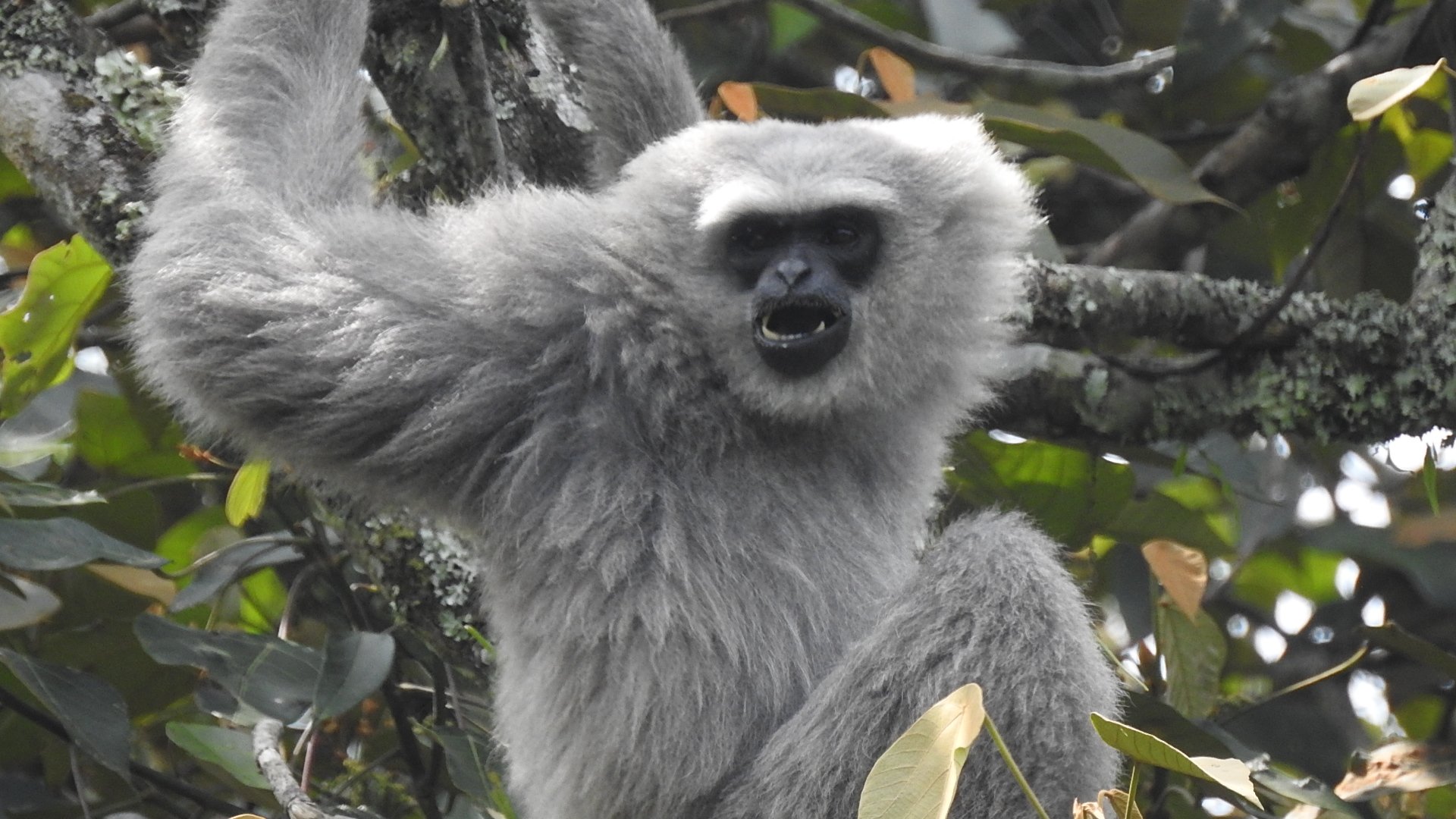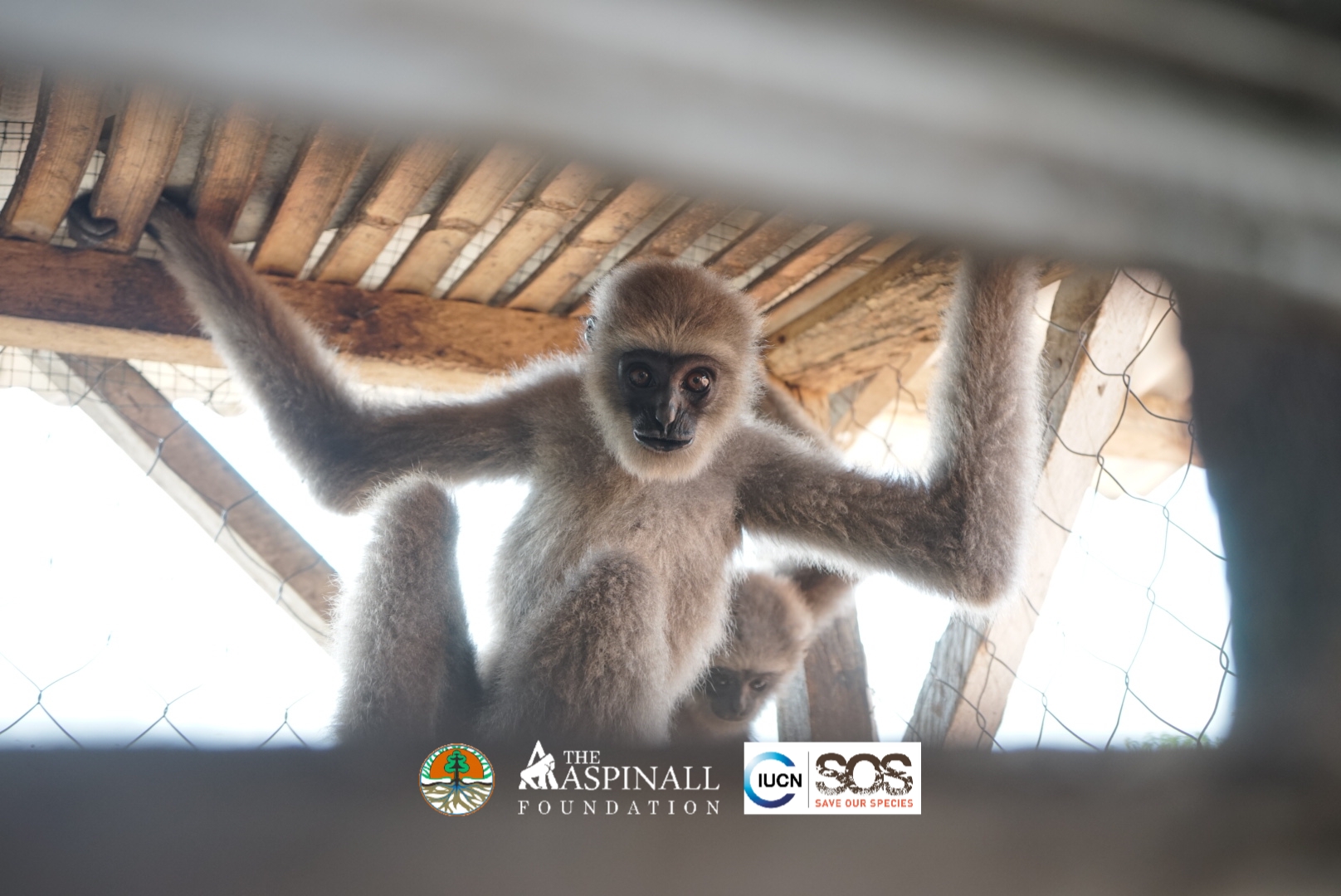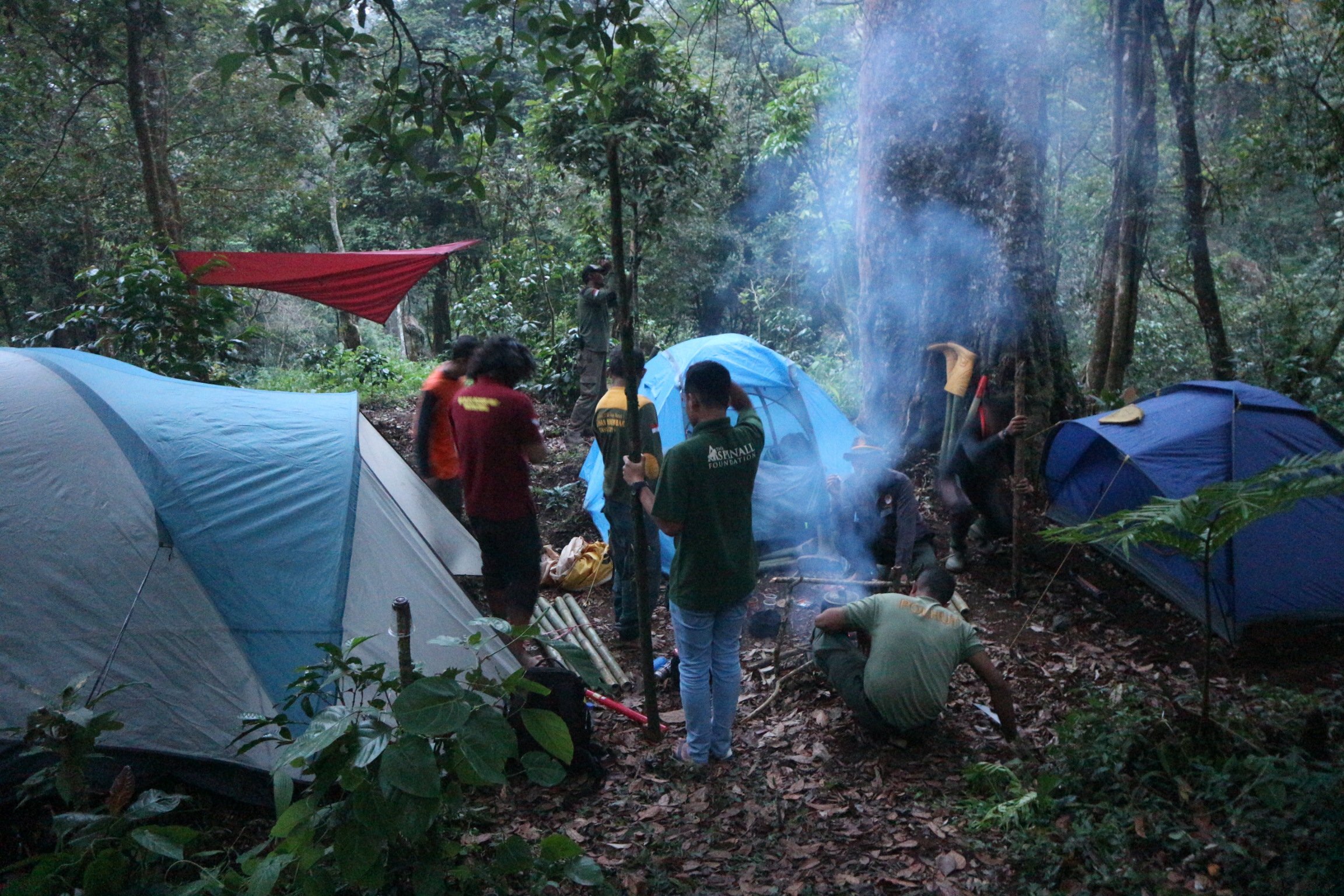The threats to wildlife and their delicate habitat continue to grow in Java as the human population encroaches on the remaining rainforest. The islands of Indonesia are a biodiversity hotspot and endemic species, such as the Javan gibbon, are losing the battle to retain their historical territory. Habitat loss is a major factor that places them at risk of extinction, and as populations decrease and become more fragmented, forced into ever smaller patches of forest, their future remains uncertain. The pressure on their survival is increased further by the continued demand from the illegal pet trade, and action is needed now if we are to stop the continual decline of numbers in the wild.
It is a gloomy scenario, but it isn’t too late. Our response to the declining populations is our Javan Primate Rescue and Rehabilitation Programme, within which we have a project to release rehabilitated Javan gibbons back to the wild at Mt Tilu Nature Reserve. We have currently reached the one-year anniversary of a two-year project co-funded by IUCN Save our Species and would like to share with you the progress made so far.
 Hadi – Released Back to the Wild February 2021 © The Aspinall Foundation
Hadi – Released Back to the Wild February 2021 © The Aspinall Foundation
The Overall Objective
This project has an overall objective to re-establish and conserve a viable self-sustaining population of Javan gibbons in and around the Mt Tilu Nature Reserve, West Java.
Gibbon Releases
The Aspinall Indonesia team have faced additional difficulties over the past year due to the coronavirus pandemic. Since the arrival of the Delta variant on the islands, and with Java facing some of the worst infection rates, the current situation is probably the worst it has been throughout the whole crisis.
Despite this additional pressure the team have continued with the programme of activities. Releases were not possible in the early weeks of the project due to pandemic restrictions but over the past twelve months, there have been seven gibbons released into the protected area of Mt Tilu Nature Reserve. This brings the total number of gibbons we have released in the area to 40. More are planned for the coming months, and already some births have occurred in the wild to animals released several years ago in the early stages of the programme
.jpg?width=6000&name=Gibbons%20placed%20in%20individual%20transportation%20crates%20for%20transfer%20to%20the%20release%20site%20(1).jpg) |
.jpg?width=6000&name=Gibbons%20placed%20in%20individual%20transportation%20crates%20for%20transfer%20to%20the%20release%20site%20(2).jpg) |
Gibbons are placed in individual transportation crates for transfer to the release site. © The Aspinall Foundation
The Rehabilitation & Release Programme
One of the elements for this project is the transfer of UK-bred captive gibbons from our wildlife parks in Kent to Java for rehabilitation and release. Unfortunately this remains the one activity that it has not been possible to progress. Whilst it remains a possibility in theory, in reality the process, with the additional testing and safety protocols required, mean that in practice it has not been possible to find a workable solution.
Despite this restriction the cages at our Javan Primate Rehabilitation Centre that have been vacated by released gibbons do not remain empty. Confiscated or surrendered wild-born primates, usually caught up in the illegal pet trade, continue to arrive. All new arrivals must undergo a period of quarantine, after wish they remain at the Centre until assessed as ready for release
 Two rescued gibbons arrive at JPRC 22nd June 2021. © The Aspinall Foundation
Two rescued gibbons arrive at JPRC 22nd June 2021. © The Aspinall Foundation
Community Involvement
Community relationships are an important aspect of conservation initiatives for them to be successful. In and around the Mt Tilu Nature Reserve there are tea and coffee farmers and the Aspinall Indonesia team maintain strong relationships with them and the local communities. We couldn’t express it better than this comment from one of the local people at the Dewata tea estate.
‘I know this project given a lot benefit to the nature here. For a long time we never heard gibbon’s call from our village, but after TAF Indonesia rewilding them, now we can heard their calling now from our village every morning. I hope we will keep protect this gibbon’ (Mr Yana – Oct 2020).
In addition to raising awareness amongst local people there are practical activities included in our project. As a general rule Aspinall Indonesia project staff members are employed from local communities, and for the Mt. Tilu project we employ local people and forest rangers in collaboration with the private and national companies. Local people often volunteer too, and whilst for some it may be limited to a day visit others participate in the monitoring of primates. For the younger generation there are school visits and educational materials, and for university students the opportunity to increase their knowledge of conservation through direct involvement in post-release activities.
 Joint patrol to measure boundaries & carry out awareness-raising with local communities May 2021 © The Aspinall Foundation.
Joint patrol to measure boundaries & carry out awareness-raising with local communities May 2021 © The Aspinall Foundation.
Unfortunately, the coronavirus pandemic has had an impact on the level of direct community contact that has been possible in recent months, but the Aspinall Indonesia team have continued with many of the planned activities after including appropriate social distancing and safety protocols. The most affected community work has been school trips but, wherever possible, alternatives have been sought, such as the creation of an on-line educational product to enable contact with local schools to continue when physical visits have not been possible.
The Next 12 Months
Thanks to the support of IUCN Save Our Species and direct funding from The Aspinall Foundation the work will continue, and more gibbons will be rescued, rehabilitated, and given the second chance for a life back in the wild. As soon as restrictions allow, we will also repatriate a small group of UK-bred gibbons to Java to join their wild counterparts.
This project is a part of the Javan Primates Conservation Programme (JPCP), managed cooperatively since 2010 by the Ministry of Environment and Forestry of the Republic of Indonesia and The Aspinall Foundation.
This project is co funded by IUCN Save Our Species. The contents of this article are the sole responsibility of The Aspinall Foundation and do not necessarily reflect the views of IUCN.

